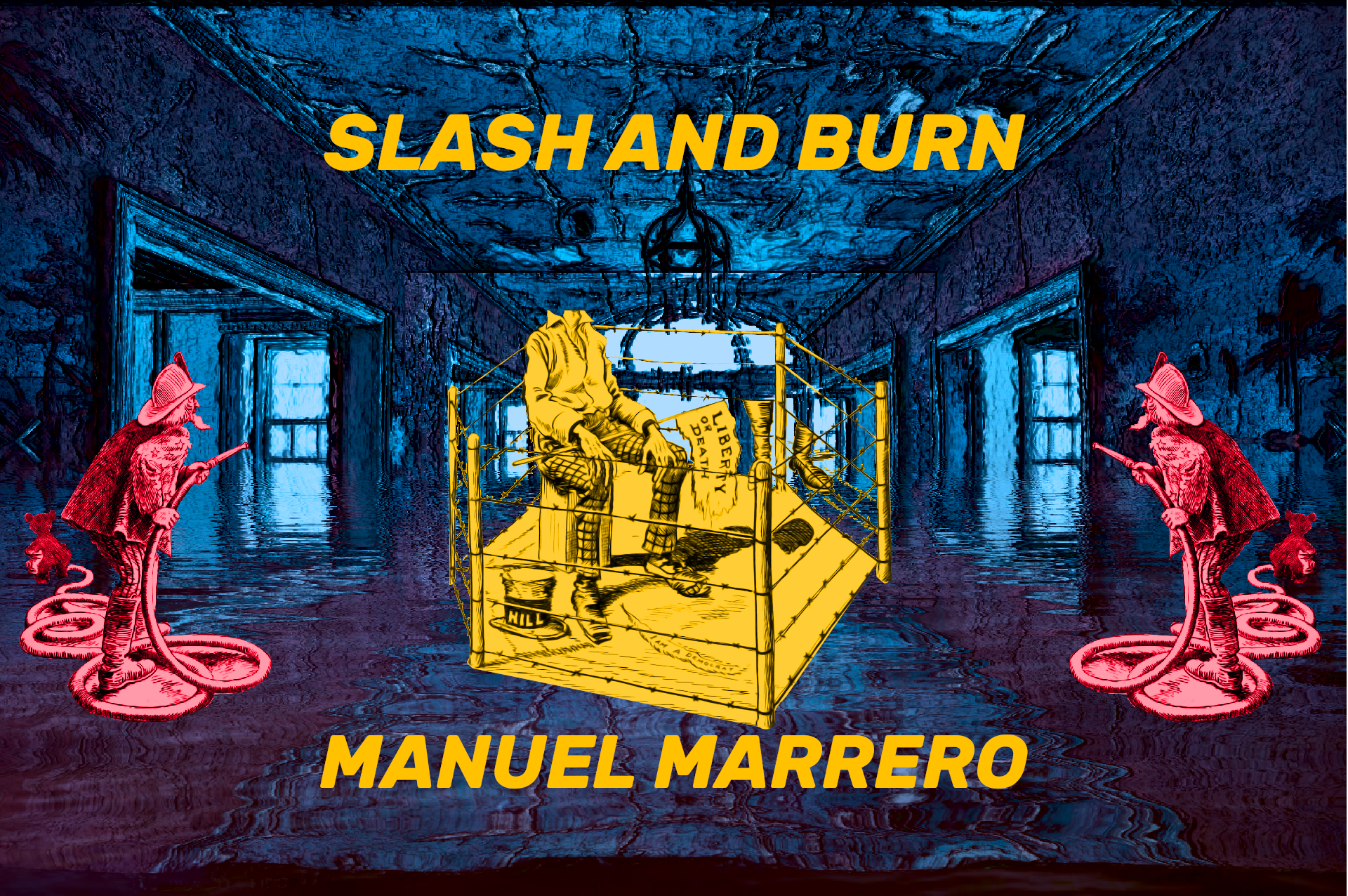Slash & Burn – On Emmalea Russo’s Confetti
A poem is never finished. Russo says she hopes they’ll let her revise it. I’ve come to it on my own via her multiple appearances on the podcast Contain, and through community. And I suppose our lingua franca, a shared affinity for cinema, is another reason I’m writing this review, which I never do. There are no hard and fast rules this doesn’t upend. I could explain what it is but I’ve never been adept at explaining and it resists. Confetti is essentially at war with pretense. Its structural symmetry is one of echoes and reprises. It promises a follow-up, Magenta, by Hiding Press in the Spring. It is a film in a state of perpetual revision, “cinema, but in space” as the namesake establishes in the appendix, an epilogue linking you to her website, to other elusive provenances, geometric outlines of certain moments from films, expanding and contracting shapes of auratic depth. What a reader internalizes is what falls on the paper in the wake of tracing light and shadow, the detritus from a breadth of verbal and spatial collisions. It is a fallen world, a hell on paper from which purgatory may be viewed. A book is atemporally consumed, but this one joins a disembodied conversation in progress. Effortlessly rhythmic, aggressive and industrial, a mix of metal and airiness, Confetti recycles titles and ideas, negates itself, bending words and signifiers as contours, reinventing its context continually. The image and the text are infrangible. There’s a snapping back of the aperture and lens flare, a coiling simulacrum of quilting points; it is a leap from a numinous frontier and the physical crash that follows and reverberates, catching the breath leaving the body in syllables and morphemes as it plummets dispersed. It calls and I respond.
Poetry books never sell. Do picture books sell? No amount of color has ever moved units for us – only black ink, usually lockstep in paragraph formation. My ideal poetry collection limns a hybridity, more a vantablack inferno swallowing light, prismatic obsidian refracting the infra-interpersonal through a convex lens, focal point where the reel ends and photosensitivity begins, psychochemical dark room vandalism. New Jersey-based divinator/multihyphenate Emmalea Russo’s Confetti is poetry in no uncertain terms, but it belies the categorical through a series of iterative, recombinant bursts of nearly asemic agony and appetency, more defiantly like a piece of titillating music or film in its use of space and absence/departure. It’s about movement, a motion picture with fine-fingered quantum entanglements. It leaves you and returns misshapen. It abandons. It was published by Hyperidean Press in September 2022, its play for longevity only just kindled, literature the smoldering art, this collection, by nature and design, with its sweeping tide of excess and formlessness, attests to the author’s manifold preoccupations as a student of cinema, philosophy and theory, history, mysticism, other work engaged in dialogue, itself a dialogue within itself.
language gets discovered
banged
upturned
butter
what about the others
your voice thin then clusters
Disposable metaphysics render permanent features, glyphs, strikethroughs, cutting room surgical deviations, vibrating little islands to anchor, density that abates and resurges almost imperceptibly, savvy and proficiency to nested dolls emulate a combustible yearning, a molten mind meld, a fucked fusion. The reader is encouraged to itinerancy. Its unconditional irreverence is aesthetic violence, its permutations are cannibalized textures, a fever of freefall through a proverbial rock tumbler of a conceit, willful opacity, mediums and messages divorced from constitutive haecceity, recast in alterity as a beautiful large empty room, tenable and aporetic, vanishingly allusive, holding patterns of household names, cryptography, backdoored ruthless beauty. Recondite maybe, but direct. Anyone looking for a semblance of narratology in poetry need look no further. This kinetic dynamism of pluck and panache imparts, above all, the quintessence of the written word; a blank sheet or screen, and writing a parafunctional habit drawing ellipses of subtle free associations which, when accrued, look something like glimmering shards of emotion and meditation. Confetti is nonpareil in its elasticity, porousness and cohesion. A sublime antipathy for the obsolescent dance of genre, ambivalence for convention, an interplay as irreducible as that of sensorium and stimulus, of input and output. It has a messy epicurean sensibility which should appeal to art terrorists and ad hoc gangsters. A street credibility. It is my favorite volume of poetry written in the last however many years that I didn’t publish, and did I mention? Poetry doesn’t sell, but it keeps on giving. You can’t afford to bet on symmetrical returns. You’re just desperate. You need this.
Purchase Confetti from the Hyperidean Press website.
Read an excerpt of forthcoming Magenta here.
Visit emmalearusso.com.
